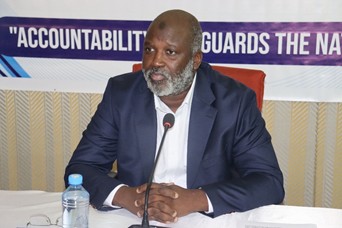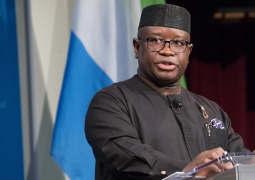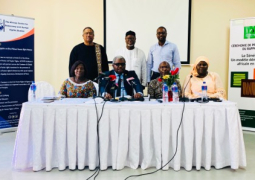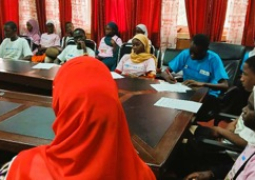
He explained that when he was invited to return home to serve, he accepted the role out of a sense of duty and love for country, not anticipating what he called the “calumny” that later surrounded his name.
Tambadou said he endured the accusations silently out of respect for his oath of office, even as his reputation was repeatedly attacked. He lamented that those who knew the truth kept quiet out of political convenience, while professionals he appointed to oversee the transitional justice process were also unfairly targeted. It was for this reason, he said, that he welcomed the committee’s inquiry to finally allow facts to be publicly presented.
He explained that the High Court ordered and conducted the sale of Jammeh’s cattle, while the Janneh Commission ordered the sale of tractors and vehicles and recommended the disposal of landed properties. The government accepted the Commission’s recommendation and approved those sales. His own role, he stressed, was limited to serving as one member of a four-person ministerial taskforce established by the president and endorsed by cabinet through the White Paper.
Tambadou emphasised that neither he nor any member of his family purchased any of the assets whether cattle, vehicles or properties. He also clarified that he identified Augustus Prom to the High Court as receiver under the Anti-Money Laundering Act, but he did not terminate Prom’s appointment. Instead, Prom’s mandate expired in accordance with the law, a point acknowledged by Prom’s own representative during the hearings. “The Janneh Commission itself recommended that a new receiver be appointed, which led to the approval of Alpha Barry. Tambadou said his actions were consistent, noting that he had similarly identified commission members, lead counsel, and the Secretary to the President.”
He added that he had never met either Prom or Barry before becoming Attorney General in 2017. Both receivers, he said, were appointed on six-month renewable terms and were paid at the same rate, with Barry’s fee later reduced after sales exceeded expectations. Tambadou also noted that he left office in 2020, yet Barry’s mandate continued to be renewed long after his departure. He further highlighted that the sale of landed properties was carried out through a transparent public bidding process supervised by the ministerial taskforce, and that the results were financially beneficial to the state.
Tambadou ended his statement by recalling a warning he issued during his final public appearance as Attorney General in June 2020.
He cautioned that misinformation remains the greatest threat to The Gambia’s young democracy and urged the media to act responsibly. Publishing false information, he said, can devastate lives in a small society where families, children, and workplaces are closely intertwined. While encouraging the press to expose corruption, he urged them to do so based on verified facts, arguing that responsible journalism strengthens credibility and safeguards the country’s democratic progress.
He concluded with a reminder that honest and hardworking Gambians must not be discouraged from serving in public office due to unfounded attacks, stressing that the country depends on its best talent to move forward.




